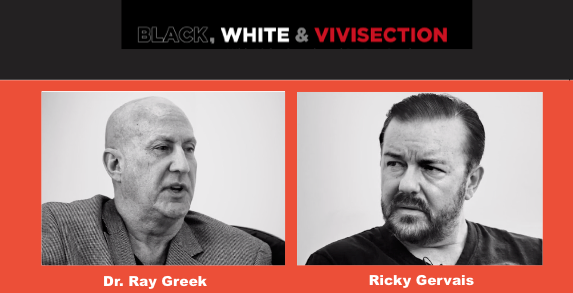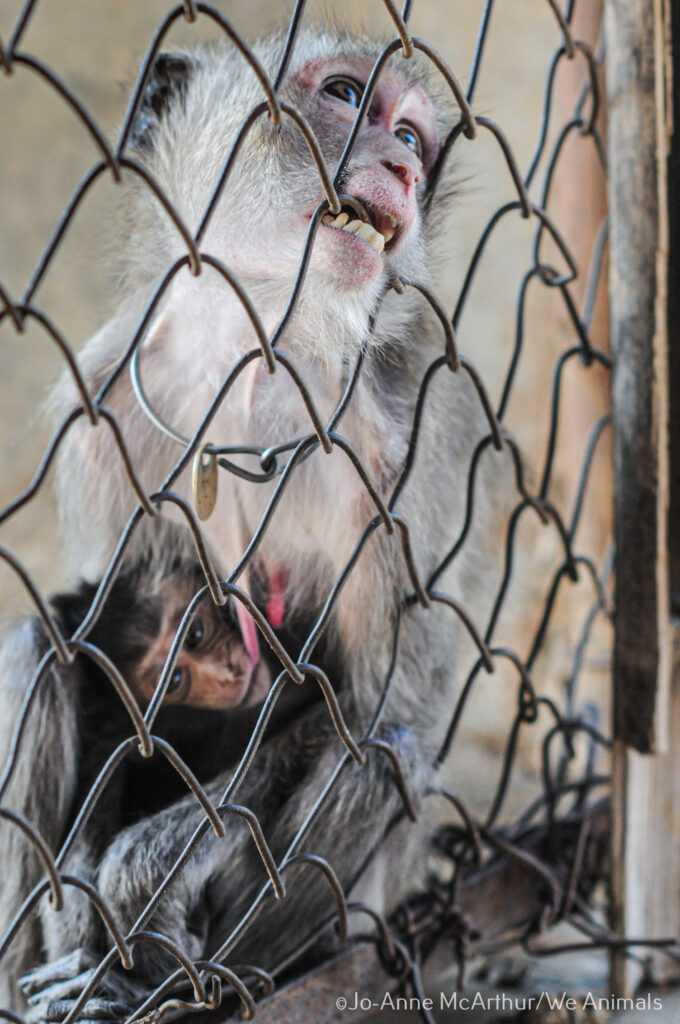Must-see Interview — Ricky Gervais appraises animal research with Dr Ray Greek
Actor, comedian and animal advocate Ricky Gervais may need no introduction, but you may be less familiar with Dr Ray Greek, Ricky’s interview subject; a doctor, scientist, author and staunch critic of animal research on scientific grounds. Formally a lecturer at two prestigious US medical schools, and with personal experience of the scientific fallacy of animal research, Dr Ray knows his stuff.

Ricky asks the question we all ponder — if animal research is not working, why does it continue? The truth lies in a resistance to changing the status quo by those with a vested interest in its continuance, and a motivation to preserve careers, prestige and egos, regardless of how counter-productive animal models of research are.
As HRA experiences here in Australia, funding institutions and peer review committees are dominated by animal researchers. For those researchers that recognise the failings of animal research to translate to human patients, speaking out may be career-destroying. Animal research brings millions of dollars of revenue to universities, hence a reluctance to question its validity.
But where does this leave patients depending on the outcomes of research? Deceived by claims that animal research is a ‘necessary evil’ and the only way to find a cure to life-threatening diseases, many people rest their hopes on such false claims. Whilst scientific knowledge on the species under study may increase, this is far-removed from advancing human health. The unfortunate reality is that the long-promised cures may never come.
Currently, Governments are heavily influenced by those with a vested interest in animal research. There is little room for alternative viewpoints. That is why it is important that experts such as Dr Ray Greek speak out and challenge regulators, the research industry and pharmaceutical companies to adopt human-based research methods, saving money, time and most importantly, lives.

We urge you to watch the interview and share with colleagues, friends and family.
Original article from Humane Research Australia. Photos from Jo-Anne McArthur / We Animals


